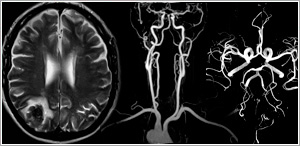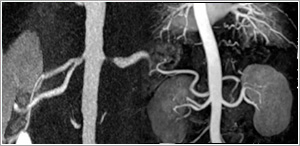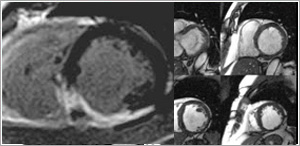• Special Services
» Cardinal MRI Center provides a wide range of MRI procedures:

Stroke Screening
This package examines the arteries including the aortic arch, neck and cranial arteries for blockage or narrowing, as well as evaluate the brain for evidence of damage caused by strokes or bleeds. In addition, the brain vessels are evaluated for aneurysms.

Hypertension Screening
This package examines for treatable causes of high blood pressure, including pheochromocytoma, an adrenal tumor , as well as narrowing of the renal arteries, both of which are causes of high blood pressure which can be surgically treated.

Comprehensive Cardiac MRI
This study is used for evaluation of coronary artery disease. Heart function ( pumping mechanism of the heart), heart perfusion ( how well is blood and oxygen getting to the heart muscles; when the blood or the oxygen it carries fail to reach the heart muscles, a heart attack ensues), viability ( what percentage of the heart muscles is already dead because of past heart attacks) are evaluated to assess the extent of end organ damage or risk of damage of coronary artery blockage. In addition, this study can be used to assess anatomy for valvular heart disease, congenital heart anomalies, non- ischemic heart muscle abnormalities, and endocarditis ( inflammation/infection of the heart muscles).

Whole Body MRI
This study is used to determine the location and extent of metastatic disease in patients with cancer, as well as possibly to identify the original source of cancer disease. It can also be used as a general screening for early treatable cancer in asymptomatic patients.

Breast MRI
This exam is recognized by the by the American Cancer Society as an invaluable tool in the fight against breast cancer. It is particularly useful as an adjunct to conventional mammography for screening or work-up of patients at high risk of developing breast cancer, in patients with dense breast where conventional mammography is limited, in the evaluation for extent of disease in patients with known breast cancer, and in the assessment of residual / recurrent tumor following breast conservation surgery.

Brain Tumor Package
For neurosurgical planning, functional imaging ( to determine the anatomic location of the eloquent areas of the brain) and diffusion tractography ( to determine the actual nerve pathways) are used by surgeons to limit post-surgical damage to important areas of the brain.
